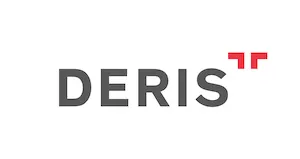The new Turkish IP Code no. 6769 ("IP Code"), which is now in force for almost more than a year, introduced the possibility for the trademark applicants to put forward the non-use claim as a defense and the possibility to settle the opposition via mediation.
Non-use Counterclaim:
According to Article 19 of the IP Code during the examination of an opposition filed against the publication of a trademark application, upon request of the applicant, the Office is entitled to ask the opponent to prove the use of the trademark on which the opposition is based. In case the opponent is unable to prove the serious use of his trademark in Turkey or there is no legitimate reason for non-use, the opposition is rejected. In case the use of the trademark is only proven for some of the covered goods or services, the examination of the opposition will be limited with such goods/services for which the use has been proven by the opponent.
Mediation:
The Code also entitled the Turkish Trademark and Patent Office ("TPTO") to invite the parties to settle the oppositions through mediation as per the Mediation Law.
Are The Above Provisions Applicable to International Trademarks Extended to Turkey?
In the current practice, the non-use counterclaim and the mediation provisions, seem to be only available for holders of national applications. This situation is likely to create a disadvantage for the holders of International Trademarks extended to Turkey via the Madrid Protocol.
Both the non-use counterclaim and the mediation can only be put forward during the evaluation of the initial opposition phase.
In order to be able to benefit from non-use counterclaim procedure, the applicant should file a counter-statement against the third party's opposition within one month as from the notification of the administrative decision issued by the Office to its side. This is being implemented with respect to the national applications.
However in case the opposed trademark is an international application extended to Turkey through WIPO, the Office refrains from notifying third party's opposition to the applicant through WIPO and prefers to examine the case directly. A possible refusal decision (refusal of the application) is notified to the applicant through WIPO without inviting the applicant to respond to the opposition filed or without inviting parties to a settlement via mediation.
On the other hand, it is obvious that in case the application is rejected by the Trademarks Department upon third party opposition, the applicant has the right to file an objection against the refusal of its application before the Higher Council within two months as from the notification date of the WIPO decision to the holder. At this point, it has to be noted that according to the new IP Code, non-use could only be asserted during the first examination of the opposition by the Trademarks Department and it is not possible to assert non-use as a counterclaim during the examination of an objection before the Higher Council.
In brief, when the application subject to opposition is an international application extended to Turkey through WIPO, since the opposition is not notified to the applicant through WIPO, the applicant of the international application will not benefit from "non-use" as a counterclaim or from the possibility to settle the matter via mediation.
Conclusion:
The above-referred situation will obviously require some pro-active measures to be taken by the owners of international applications in order to monitor their status and to avoid a loss of right during the application phase.
The content of this article is intended to provide a general guide to the subject matter. Specialist advice should be sought about your specific circumstances.


